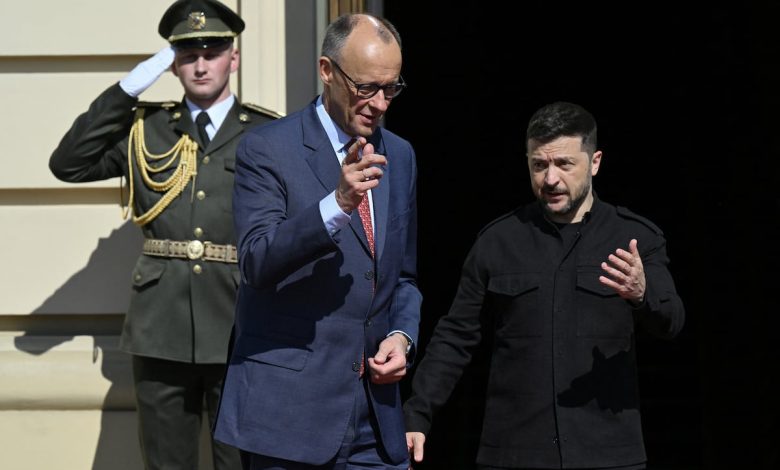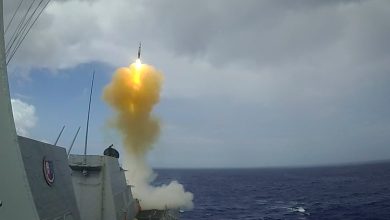Germany’s Merz lifts range limit on weapons donated to Ukraine

THE HAGUE, Netherlands — German Chancellor Friedrich Merz announced Monday that Berlin and its Western allies were lifting range restrictions on weapons supplied to Ukraine, though the practical implications of the apparent policy shift were not immediately clear.
Speaking at a European forum in Berlin, Merz declared that “there are no longer any restrictions on the range of weapons delivered to Ukraine, neither by the UK, France, nor us. There are no restrictions by the U.S. either.”
The decision should allow Ukraine to target military installations on Russian territory, which Moscow’s forces use routinely to stage attacks against Ukrainian cities.
Merz’s announcement came days after Russia launched a record 355 drones against Ukraine over the weekend in Moscow’s largest assault since the beginning of the war three years ago.
Ukraine has received several hundred Storm Shadow/SCALP missiles from Britain and France and shy of 50 ATACMS from the United States, tallies by defense observers show.
Merz did not mention Germany’s Taurus cruise missiles in his announcement, despite his previous advocacy for their delivery while serving as opposition leader. The 500-kilometer-range system represents Germany’s most capable long-range strike capability and is considered more precise than the systems Ukraine already possesses.
Merz’s predecessor, Olaf Scholz, had refused Taurus deliveries, citing escalation fears with nuclear-armed Russia. The Kremlin, for its part, has warned Germany that this would present a dangerous escalation.
Since taking office, Merz has remained noncommittal on Taurus transfers, though it is possible this may be part of a larger policy shift toward secrecy and strategic ambiguity.
The German government has ended the public listing of most military aid details, once a potent communications tool to trumpet the government’s contributions in the face of critics blaming Berlin for underdelivering.
Germany has provided the second-most military aid to Ukraine, after only the United States. Defense officials acknowledged in March that the country’s capabilities to supply weapons from stockpiles “have reached the limit.”
The transparency change also coincides with budget pressures. Germany allocated €4 billion for Ukraine support in its 2025 draft budget — half of what it spent in 2024.
Moscow, meanwhile, denounced the lifting of range restrictions as “dangerous,” with Kremlin spokesperson Dmitry Peskov warning the decision runs “contrary to our efforts to reach a political settlement.” Russia has previously threatened that Ukrainian strikes using German-made Taurus missiles would constitute “direct participation” by Berlin in the conflict.
Both ATACMS and Storm Shadow missiles have already been used against targets inside Russia since late last year.
Linus Höller is a Europe correspondent for Defense News. He covers international security and military developments across the continent. Linus holds a degree in journalism, political science and international studies, and is currently pursuing a master’s in nonproliferation and terrorism studies.







